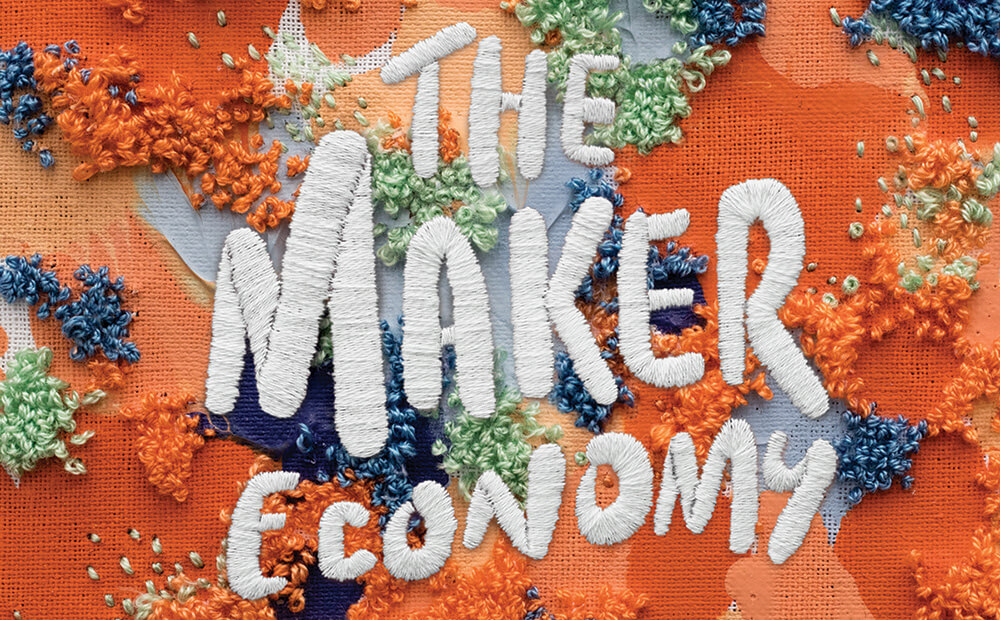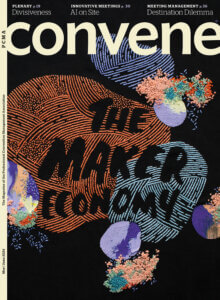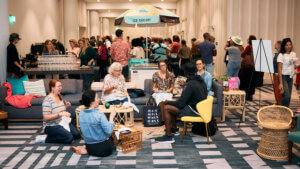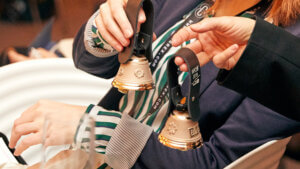
Toward the end of the first episode of the recent PBS series “A Brief History of the Future,” futurist Ari Wallach says that when he first started the documentary — intended to be a journey to seek the individuals and ideas that can shape a better, more sustainable future that each generation can build upon — he thought that the storyline would revolve around technology.
“And yet, as I talk about what people are working on, what do they want to see happen in futures, they talk about being human again,” Wallach says. “And what’s most surprising to me is the desire to start making some decisions about what do we want to leave behind and what do we want to start creating more of that we’ve lost.”
Being human again and creating more of what we’ve lost — like making things with our hands — are at the heart of the maker movement, defined by MIT Sloan Management Review as “a cultural phenomenon that celebrates shared experimentation, iterative learning, and discovery through connected communities that build together, while always emphasizing creativity over criticism.”
While makers reclaim the human impulse to build or create and to belong, they don’t live in the margins of society — they contribute significantly to the global economy. The maker economy is thriving, according to a recent article in Forbes: “From arts and crafts products sold on Etsy through to inventors and using crowdsourcing platforms to connect with potential buyers, makers play an important role in today’s economy as designers, manufacturers, employers, and taxpayers.”

CMP SERIES CREDIT
Earn one clock hour of certification by visiting the CMP Series page to answer questions about the articles below. The Certified Meeting Professional (CMP) is a registered trademark of the Events Industry Council.
How does the maker movement intersect with business events and how can we tap into it for more meaningful experiences for our participants? Convene cast a wide net for ideas — speaking to maker experts, destination marketers, and a furniture manufacturer in Mexico who went all in on a local craft initiative for its brand presence at a trade show. We even reflect on how the handiwork of makers has made events memorable for us.
We hope this collection of stories helps shift the conversation about the future of face-to-face events — where we embrace the shiny, new tech tools while also weaving in more of what makes us human again.
The Maker Economy and cover illustration by Maricor/Maricar
Bringing the Maker Movement to Events
The founder and president of Make: Community reflects on why people become makers and the role the maker movement can play in events.
How Knoxville Became a Model for Supporting Local Makers
As Etsy’s first official U.S. ‘Maker City,’ Knoxville, Tennessee, is growing the local economy through arts, crafts, and entrepreneurship.
Discovering Indigenous Culture Through Crafts and Stories
Marc Forgette, founder of Makatew Workshops, uses Indigenous crafting sessions at meetings and events to help participants focus on the story he shares about his Indigenous heritage.
Artisans Craft Ribbon Into a Unifying ‘Social Fabric’
A work of crochet that began as a religious offering has put a town in Jalisco, Mexico, on the map, in the Guinness Book of World Records, and center stage at expo events.
Cowbells and Woolen Slippers — Cherished Handmade Gifts From Events
Event goers prize the handcrafted amenities they receive at conferences that convey a sense of place or a personal touch — and provide a lasting memory.
Making Space for Makers in Portland
Portland’s My People’s Market has created opportunities for local makers and entrepreneurs who need a platform — and the events, tourism, and hospitality industries are a part of the mix.






